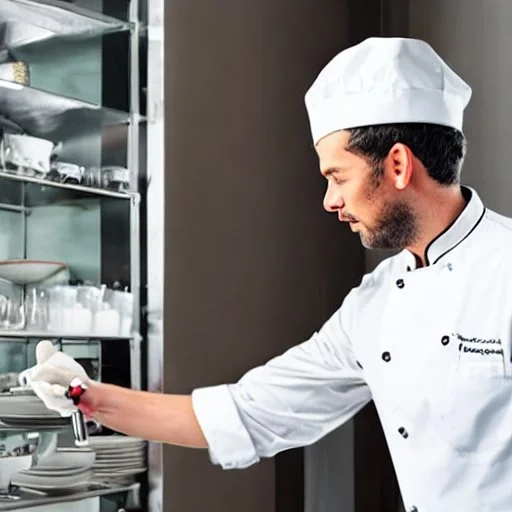July 19, 2025

Restaurants and food service establishments are a specific type of business that requires careful consideration of electrical safety. Electrical systems are necessary for powering the equipment used to prepare food, store ingredients, and maintain a safe working environment. Therefore, it is crucial for restaurant owners to understand the significance of implementing electrical safety measures in their daily operations. This article provides an overview of the role of electrical safety in restaurants and food service establishments, including common electrical hazards, relevant regulations, preventive measures, and potential benefits.
The importance of electrical safety in restaurants and food service establishments is extremely high, as they rely heavily on electricity for their day-to-day operations. To guarantee the safety of customers and employees, it is critical to ensure that all power sources are installed and maintained correctly.
Regular electrical maintenance is necessary to lessen the risk of fire or other dangers that may arise from faulty wiring or malfunctioning equipment. This includes inspecting cords for exposed wires or worn insulation, ensuring proper grounding of components, testing GFCI outlets, and examining any movable equipment for loose connections. Additionally, staff members should be trained on how to safely operate any electrical appliances used in the establishment.
Apart from regular maintenance checks, it is crucial for restaurant owners to stay up-to-date with the latest regulations on electrical safety and adhere to any applicable codes. Failure to do so may result in expensive fines and put customers at risk of injury. It is also important for staff members to be aware of the potential risks associated with electricity so that they can take steps to avoid them while on the job.
By following these fundamental guidelines, restaurants can create a safe environment where everyone can enjoy their meals without worrying about electrical accidents or fires occurring on their premises.
Proper maintenance of electrical systems is crucial to avoid potential hazards in restaurants and other food-related facilities. High numbers of electrical appliances, wiring, and outlets make electrical fires one of the most common risks in these establishments. To prevent fires, it is important to regularly inspect and correctly install all electrical components. Maintenance should include visually inspecting cords and plugs for damage or wear and testing ground fault interrupters (GFIs) to detect faulty wiring or current overloads. Defective wiring or equipment must be replaced immediately to reduce the risk of fire. To prevent overworked circuit breakers causing fires, only one appliance per outlet should be plugged in. Following these safety measures can effectively reduce the risk of electrical fires in restaurants and food service establishments.
Adhering to safety regulations is crucial for protecting customers and staff in food service establishments and restaurants. To ensure electrical safety, restaurant owners must comply with the applicable laws and regulations set by their local government. This usually involves conducting regular inspections of equipment such as switches, wiring, cords, lighting fixtures, plugs, and outlets. Food service staff should also receive proper training on how to handle electrical equipment properly to minimize potential risks. Additionally, any damaged or faulty equipment should be repaired or replaced immediately to prevent hazardous conditions from occurring. Furthermore, all restaurant personnel should be aware of the potential risks associated with electricity to take precautionary measures when necessary. By complying with these regulations and standards of electrical safety, restaurants can promote a safe environment for both their customers and employees.
Implementing measures to prevent electrical hazards is crucial in ensuring safety in restaurants and food service establishments. The first step towards achieving a safe environment is to perform a thorough risk assessment that identifies potential risks associated with equipment like wiring systems, transformers, and appliances. It is also essential to conduct regular safety audits to ensure that all electrical components comply with established safety standards. By doing so, any issues can be identified and resolved before they cause harm or injury. Providing proper training to all personnel on how to identify potential hazards and respond to emergency situations is also crucial. These preventive measures will promote a secure working environment for everyone involved in the restaurant or food service establishment's operations.
Adopting effective safety measures in Australian restaurants and food service establishments is crucial to ensure the well-being of all involved. Electrical safety plays a vital role in preventing fires, shock hazards, and other electrical mishaps. One way to achieve electrical safety is by using Ground Fault Circuit Interrupters (GFCIs) that can detect any current imbalances between hot and neutral wires, preventing electrocution or electric shock. Proper labeling of circuits and breakers must be done to identify potentially hazardous areas such as wet locations or areas with water sources nearby. Regular inspection of wiring for any signs of wear and tear is also essential to ensure that all systems remain functioning correctly. By implementing these strategies, Australian restaurants and food service establishments can prioritize worker safety and customer satisfaction.
The importance of electrical safety in restaurants and food service establishments cannot be overstated. It can prevent costly damages to property, serious injuries, and potentially fatal accidents. Proper training is essential to ensure that staff are aware of the risks associated with electricity and how to mitigate them.
Adhering to safety regulations is necessary for compliance with local laws, but it also serves as a proactive measure against potential hazards. The implementation of preventive measures like regular inspections, maintenance plans, and emergency preparedness will help protect people from danger while ensuring the smooth operation of restaurants and food service establishments.
Electrical safety should not be overlooked; it should be an integral part of any restaurant or food service establishment's operations.